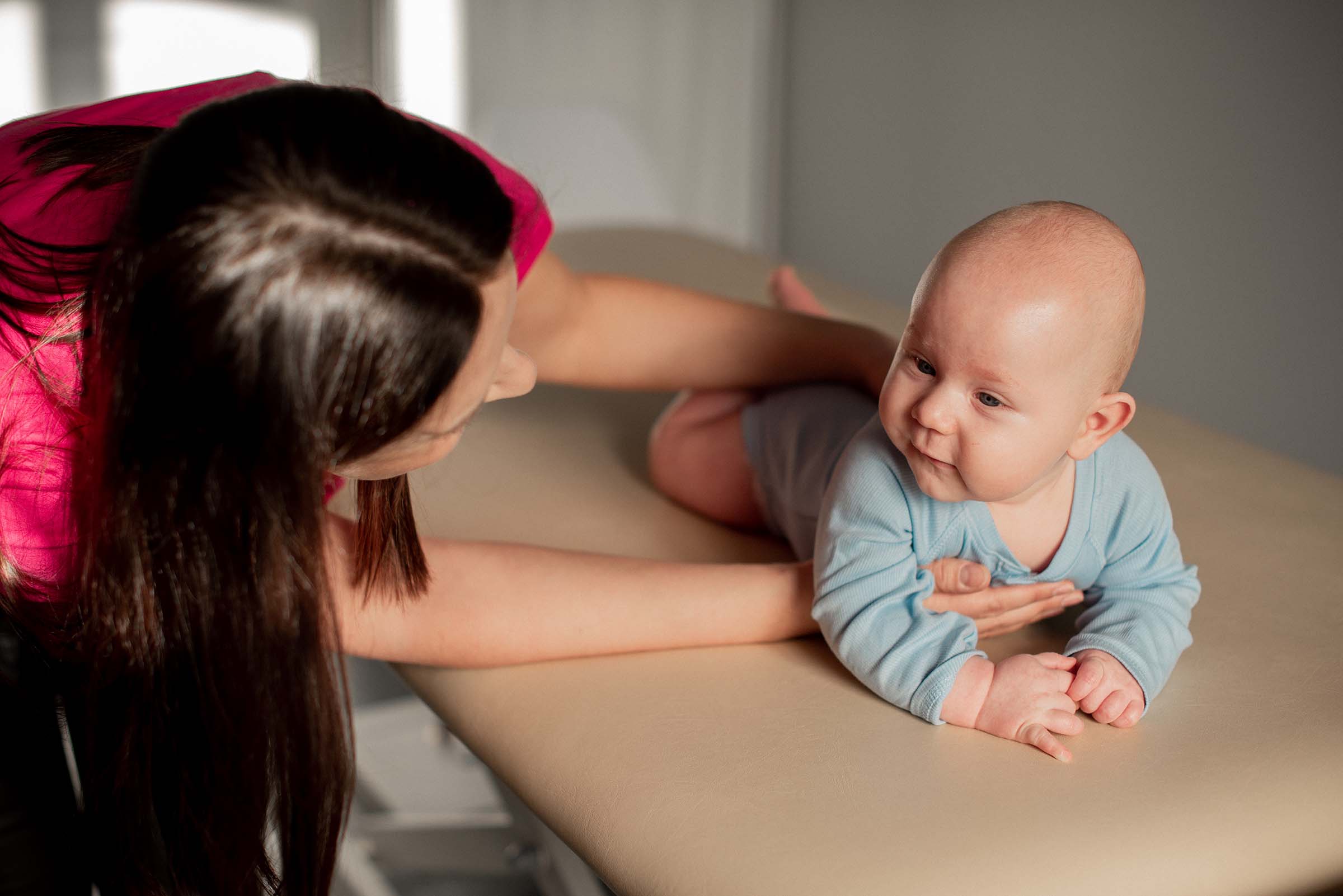
Does the order of developmental milestones matter?
Each acquired skill is an opportunity to exercise the nervous and muscular systems, ultimately leading to upright posture! Not every child will follow the exact sequence described in literature. There can be many reasons for this. For example, if a child attempts to stand before crawling, it could be due to weaker abdominal muscle activity. But don’t worry! By practicing pulling up to stand, a child can strengthen their abdominal muscles, such as by climbing on a parent or furniture. Often, children who have achieved a higher position are so fascinated by it that they lose interest in perfecting lower-level skills. It’s important to give your child time and offer plenty of activities that encourage them to practice and refine their newly acquired abilities. However, if you’re concerned about your child’s development, it’s crucial to consult a specialist. You don’t have to know everything; a calm parent means a calm and happy child.
Milestones as an early assessment of a child’s motor development: yes or no?
It is often said that reaching milestones can also serve as a diagnostic tool. Motor skills are assigned to specific age ranges, creating a “developmental window” (for example, independent walking between 12-18 months). This makes it easy to assess a child’s stage of development and predict the next phase.
Personally, I take this with a grain of salt. Of course, it’s helpful to know the stages of motor development, but development is not a race—quality matters more than quantity. Remember that cognitive (intellectual) and motor development assessments alone won’t give us a complete picture of a child. The child’s environment, nutrition, digestion, and the amount and quality of sleep are essential factors in diagnosing a newborn. Only when we combine these with an evaluation of cognitive and motor development can we have a full understanding of the little one and make any meaningful conclusions.
Scientific research
Milestones can be divided into cognitive and motor categories. Cognitive milestones form the basis of intelligence, while motor milestones are the foundation of fine and gross motor skills.
In a 2019 study conducted by the American Academy of Pediatrics, milestones were analyzed on a percentage scale. Parents of nearly 41,500 children aged 0-3 from three U.S. states participated in the survey. They were asked to report when their child reached certain milestones. Here are the percentage results:
Milestones
| Cognitive and Communication | Motor |
|---|---|
| 4 months: imitates sounds (51%) | 4 months: rolls from stomach to back (78%) |
| 6 months: responds to name (97%) | 6 months: transfers toy from one hand to the other (97%) |
| 9 months: imitates sounds (97%) | 9 months: sits independently (94%), stands with assistance (84%) |
| 12 months: says “mama”, “dada” (91%), follows simple commands (94%) | 12 months: holds two objects and bangs them together (>99%) |
| 18 months: names at least 5 objects (97%) | 18 months: walks independently (>99%), runs and climbs (97%), climbs stairs with assistance (96%) |
| 24 months: combines two or more words into simple sentences (>99%) | 24 months: kicks a ball (>99%), draws a line (92%) |
| 36 months: speaks in a way that is mostly understood by others (>99%) | 36 months: climbs playground ladders (>99%), draws simple shapes (94%) |
| 48 months: begins to understand time, uses words like “yesterday” and “tomorrow” (98%), tells stories from books or tales (>99%), follows simple game rules (98%) | |
| 60 months: can say their full name (>99%) |
- Head control: 2-3 months
- Achieves body symmetry: 3-4 months
- Pivots (rotates around their own axis): 4 months
- Forearm support: 4 months
- Rolls from stomach to back and back to stomach: 5/6 months
- Hand support: 6 months
- Crawls: 7 months
- Sits independently without support: 9 months
- Crawls on all fours: 9 months
- Stands independently: 11 months
- Walks independently: 12-18 months

